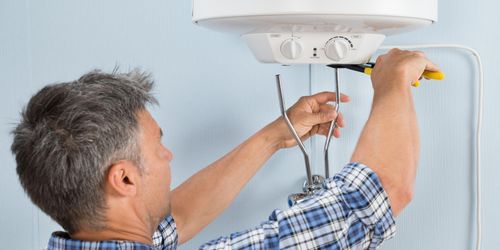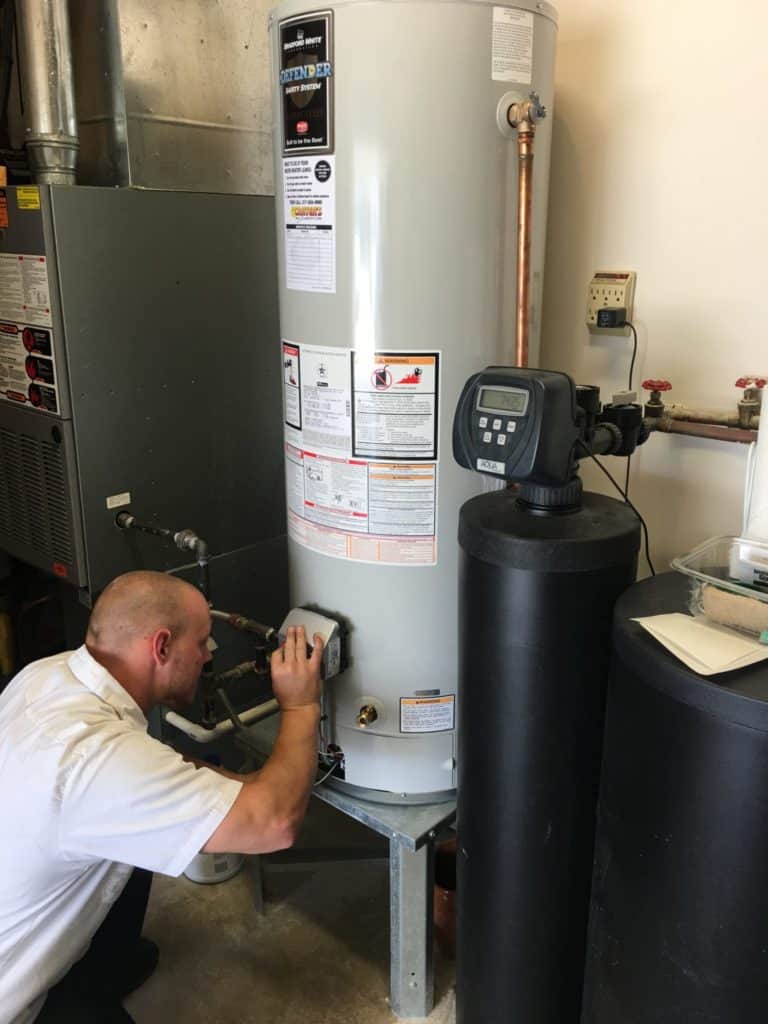Responding to the Frequently Arising Water Heater Urgent Problems
Responding to the Frequently Arising Water Heater Urgent Problems
Blog Article
What're your concepts about The Importance of Water Heater Maintenance?

A hot water heater is one of one of the most crucial fundamental home appliances that can be discovered in a home. With hot water heater, you don't require to experience the stress and anxiety of home heating water by hand whenever there is a demand to wash, do the laundry, or the recipes. There is constantly an opportunity that your water heating system would act up as with the majority of mechanical tools.
It is important to note any kind of little breakdown as well as tackle it swiftly prior to things leave hand. A lot of times, your hot water heater begins to malfunction when there is a build-up of debris as a result of continual usage. As a precaution, regular flushing of your hot water heater is recommended to prevent sediment buildup as well as prevent useful failure.
Common water heater emergency situations and how to deal with them
Insufficient warm water
Taking care of an insufficient supply of warm water can be aggravating. It might be that the water heater can not sustain the hot water demand for your house. To handle this problem, you could try to readjust your heater's temperature level dial and also wait for a couple of mins. You can ask for the help of an expert plumber if the problem continues. You might upgrade your water heating unit to one with a bigger capability.
Changing water temperature level.
Your hot water heater could begin producing water of various temperatures typically ice cool or scalding hot. In this scenario, the first thing you do is to make certain that the temperature level is set to the wanted level. If after doing this, the water temperature level keeps altering throughout showers or various other tasks, you could have a malfunctioning thermostat. There may be a need to change either the home heating or the thermostat unit of your hot water heater.
Leaky hot water heater storage tank.
A leaky container could be an indication of rust. It can trigger damages to the floor, wall surface as well as electrical tools around it. You could also go to risk of having your house flooded. In this scenario, you need to switch off your hot water heater, allow it to cool, as well as meticulously seek the resource of the problem. Sometimes, all you require to do is to tighten a few screws or pipe connections in cases of small leaks. If this does not work as well as the leak continues, you might require to use the solutions of a service technician for an ideal replacement.
Stained or smelly water
When this occurs, you require to recognize if the issue is from the water or the storage tank resource. If there is no amusing odor when you run chilly water, after that you are particular that it is your water heater that is malfunctioning. The stinky water can be caused by rust or the build-up of bacteria or sediments in the water heating unit container.
Verdict
Some property owners ignore little warning and also minor faults in their water heater system. This just causes further damage and also a possible full break down of your device. You need to handle your water heater faults as soon as they come near avoid even more expenditures as well as unneeded emergency troubles.
With water heating units, you do not need to go through the anxiety of heating water by hand every time there is a need to take a bathroom, do the washing, or the meals. It might be that the water heating system can't support the warm water need for your house. Your water heating system could start generating water of different temperatures usually ice scalding or cool warm. If there is no amusing scent when you run cold water, after that you are particular that it is your water heating unit that is damaged. The smelly water can be created by corrosion or the build-up of germs or debris in the water heater storage tank.
Water Heater Burst: Why This Happens And What To Do Next
Water Heater Explosion Warning Signs
Since storage water heaters are made of metal and store large volumes of heated water, they carry an increased risk of leaking or even exploding as they begin to rust at the fittings and seams over time. If the thermostat controlling the water temperature within the tank is faulty, or if mineral buildup inside the water heater prevents the thermostat from sensing the water’s temperature correctly, the water could become overheated. This will expand its volume within the tank, causing it to press at the tank’s fittings and seams. If these fittings and seams are rusted or corroded, the pressure could result in a leak or even an explosion.
Here are some risk factors and warning signs of an increased risk of water heater leak or explosion:
Your water heater is more than 10 years old. Your water heater makes clanking, banging or rumbling noises as it heats up, indicating that sediment has built up and hardened inside the tank. There is visible rust on the outside of the water heater, especially located at the pipe fittings or the seams that run down the tank. There is rusty water coming from your water heater, indicating that there may be rust building up inside. Your water heater is leaking, which could indicate either a crack somewhere in the tank or a malfunctioning temperature-and-pressure (T&P) relief valve. What To Do When Water Heater Leaks
If you find water dripping or seeping out of your water heater, or pooling around it, it means your water heater is leaking. If you find a leak, it may be best to call a plumbing professional to diagnose the problem and determine how best to handle it. If you choose to tackle it on your own, there are a few things you can do.
TURN OFF THE POWER
Next, shut off the power to the hot water tank at your home’s electrical breaker box. If you don’t shut off the power, the heating elements within the tank could continue to stay hot, which could pose a fire risk.
If you have a gas-powered water heater, you’ll also need to shut off the gas line leading into the tank.
FIND THE LEAK
Now it’s time to determine where the leak is coming from. Likely locations are the T&P valve, the drain valve or one of the pipes or fittings that feed into the top of the tank. If you see any rust or corrosion on the outside of your water heater’s tank, pipes or fittings, these could also be the source of the leak.
REPAIR THE LEAK
Once you determine the source of your water heater leak, you’ll have a better idea of what steps you need to take to fix the problem. It may be a simple fix—such as using a wrench to tighten fittings or replacing the T&P valve—but it may be something more complicated. You may even need to drain the tank, remove the water heater and install a new one.
https://www.abchomeandcommercial.com/blog/water-heater-burst/

Do you appreciate reading about Warning Signs You Need Water Heater Repairs? Try to leave a short review down below. We'd be pleased to find out your thinking about this review. In hopes to see you back again in the future. I beg you take the time to promote this blog if you liked it. Thank you for taking the time to read it.
Best choice? Ring us! Report this page